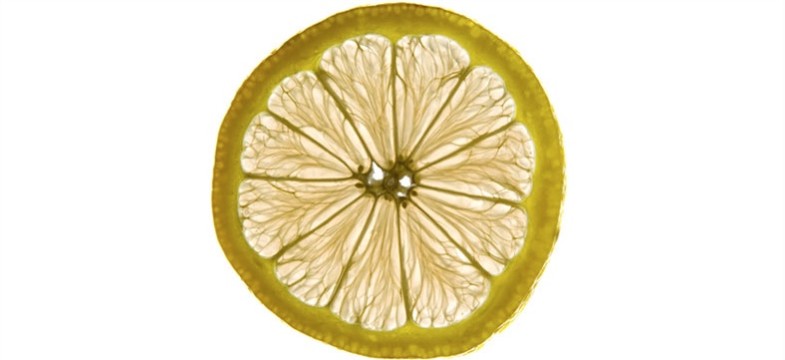Does Vitamin C Destroy Vitamin B12?
Again and again reports appear online that warn against taking vitamin C and vitamin B12 together, as supposedly high-dose vitamin C can destroy B12.
To date, however, it has not been clarified as to whether this effect really exists. Although vitamin C can decompose B12 under laboratory conditions, there is disagreement as to whether this can also occur in the body.
So far, not a single study has shown that vitamin C prevents the absorption of B12. This article gives an overview of all of the studies published so far.
Is Vitamin C Incompatible with Vitamin B12?
This discussion, which today is mostly conducted in blogs and online forums, goes back to a study from 1974 by Herbert and Jacob (1), which postulates that vitamin C could destroy B12 on its way through the digestive tract and whilst it is being transported in the blood. The authors fear that taking high doses of vitamin C might lead to B12 deficiency. This consideration, in turn, was based on early studies from the 1950s, which showed that B12 is partially destroyed in a vitamin C aqueous solution (2, 3).
Two years later, Herbert’s assumption was contradicted by Newmark et al. who were able to show that B12 in foods is completely stable with vitamin C at body temperature and that interaction within the body are highly unlikely. In foods, vitamin B12 is bound to proteins that protect it from decomposition.
Herbert and Jacob published another study in 1978 in which they reported having found low levels of B12 in patients taking high doses of vitamin C (5). However, the effect was not clearly reproducible and only occurred in certain individuals. The study ultimately concluded that large amounts of vitamin C could negatively affect the readings, not the B12 supply, if the serum sample was heated prior to the radio assay. This effect could not be achieved by heat or vitamin C alone, but only by a combination of both and only at certain pH values. The apparent loss of B12 may therefore have been due to the process of the measurement procedure.
This hypothesis was confirmed by a team of researchers in two studies in 1980: the apparent loss of vitamin B12 in Herbert’s initial study was a result of the measurement procedure (6, 7).
Does Vitamin C Impair the Absorption of Vitamin B12?
The question of what extent the effect observed on the blood samples could occur biologically was now open; although further investigations over the next few years showed little cause for concern.
An essay from 1980 examined the hypothesis according to physical parameters and concluded that hydroxocobalamin might be susceptible to vitamin C at certain temperatures and pH values, but that all other forms should remain stable under biological conditions due to their chemical properties (8).
A 1981 study examined the B12 status of 20 patients who had been taking high doses of vitamin C for many years and found no negative effect on their B12 levels (9).
In 1982, Watson et al. were able to show that although vitamin C can indeed attack hydroxocobalamin under certain conditions, these are presumably not present in vivo. What is more, the absorption of cyanocobalamin was even improved by vitamin C. Tests showed that with an intake of 2000 mg of vitamin C no obstruction or destruction of B12 could be observed (10).
Another study also from 1982 could show that with multivitamin supplements dissolved in water, parts of the cobalamin can be destroyed by vitamin C and copper (11).
Experiments on rats from 1989 came to the conclusion that vitamin C even improved the absorption of cyanocobalamin, an effect that had also been observed in previous studies (12).
In 1999, the subject was examined again in a control study. By comparing the blood levels of 10 000 test participants, this study was to determine whether an elevated vitamin C level led to low B12 levels. The study could not find such a connection (13).
These studies gave the first all clear on the topic, which was not investigated further for a long time.
The Destruction of Vitamin B12 Through Vitamin C
However, in 2014 research resumed. A detailed study showed that in aqueous solutions with high doses of vitamin C both cyanocobalamin and hydroxocobalamin are partially destroyed at room temperature (14). This effect was observed at all pH values from 1 to 8, with the greatest effect at a pH value of 5. This study thus confirmed the oldest observations from the fifties and for the first time was able to examine the exact rate of decay and the separate degradation products.
The range of pH values studied here covers both the range that exists in the production and formulation of vitamin supplements and the conditions in the human digestive system.
This study suggests that, for example, the production of high-dose multivitamin supplements could lead to the destruction of B12 – a thesis that had already emerged in the 1980s.
Vitamin B12 in food, on the other hand, is bound to proteins that protect it from decay. In the body, the majority of B12 is also bound to various proteins such as intrinsic factor (IF) and transcobalamin, and is probably immune to the negative effects of vitamin C.
How much vitamin C effect B12 in the body therefore remains an unanswered question.
Conclusion: Vitamin C and Vitamin B12
Although vitamin C can attack certain forms of B12 under laboratory conditions, there is no evidence to date that it plays a biological role: so far, no study has shown a negative effect of high doses of vitamin C on the uptake or utilisation of B12.
On the other hand, there is good evidence that vitamin C can destroy chemically isolated B12 in the laboratory. This could be relevant for multivitamin supplements, especially if they are available as aqueous solutions.
Even when taking high doses of vitamins C and B12 at the same time, interactions can theoretically occur. Especially when there is a shortage of IF and passive diffusion is responsible for the major B12 intake, since the B12 is not bound to IF and thus becomes more vulnerable. However, studies are still missing that would clearly prove this and some studies even report that vitamin C improves B12 absorption.
So far, there is hardly any reason to assume that a negative interaction of any major relevance takes place between vitamins C and B12. If you want to exclude all risks however, when taking more that 500 mcg of vitamin C you should observe a four-hour gap between taking the two vitamins.
Sources
- Herbert V, Jacob E. Destruction of Vitamin B12 by Ascorbic Acid. JAMA. 1974;230(2):241-242.
- Frost DV et al L. Differential stability of various analogs of cobalamin to vitamin C. Science. 1952 Aug 1;116(3005):119-21.
- Hastings H. Hutchins, Patricia J. Cravioto, Thomas J. Macek, A Comparison of the Stability of Cyanocobalamin and Its Analogs in Ascorbate Solution. Journal of the American Pharmaceutical Association (Scientific ed.), Volume 45, Issue 12, 1956, Pages 806-808, ISSN 0095-9553
- Newmark HL, Scheiner MS, Marcus M, Prabhudesai M. Stability of vitamin B12 in the presence of ascorbic acid. Am J Clin Nutr. 1976 Jun;29(6):645-9.
- Herbert V, Jacob E, Wong KT, Scott J, Pfeffer RD. Low serum vitamin B12 levels in patients receiving ascorbic acid in megadoses: studies concerning the effect of ascorbate on radioisotope vitamin B12 assay. Am J Clin Nutr. 1978 Feb;31(2):253-8.
- Marcus M, Prabhudesai M, Wassef S. Stability of vitamin B12 in the presence of ascorbic acid in food and serum: restoration by cyanide of apparent loss. Am J Clin Nutr. 1980 Jan;33(1):137-43.
- Newmark HL, Scheiner JM, Marcus M, Prabhudesai M. Ascorbic acid and vitamin B12. JAMA. 1979 Nov 23;242(21):2319-20.
- Hogenkamp HP. The interaction between vitamin B12 and vitamin C. Am J Clin Nutr. 1980 Jan;33(1):1-3.
- Ekvall S, Chen IW, Bozian R. The effect of supplemental ascorbic acid on serum vitamin B12 levels in myelomeningocele patients. Am J Clin Nutr. 1981 Jul;34(7):1356-61.
- Watson WS, Vallance BD, Muir MM, Hume R. The effect of megadose ascorbic acid ingestion on the absorption and retention of vitamin B12 in man. Scott Med J. 1982 Jul;27(3):240-3.
- Kondo, H., Binder, M. J., Kolhouse, J. F., Smythe, W. R., Podell, E. R., & Allen, R. H. (1982). Presence and formation of cobalamin analogues in multivitamin-mineral pills. Journal of Clinical Investigation, 70(4), 889–898.
- Thenen SW. Megadose effects of vitamin C on vitamin B-12 status in the rat. J Nutr. 1989 Aug;119(8):1107-14. PubMed PMID: 2778537.
- Simon JA, Hudes ES. Relation of Serum Ascorbic Acid to Serum Vitamin B12, Serum Ferritin, and Kidney Stones in US Adults. Arch Intern Med. 1999;159(6):619-624.
- Ahmad I, Qadeer K, Zahid S, Sheraz MA, Ismail T, Hussain W, Ansari IA. Effect of ascorbic acid on the degradation of cyanocobalamin and hydroxocobalamin in aqueous solution: a kinetic study. AAPS PharmSciTech. 2014 Oct;15(5):1324-33.
Photo: Lemon by Andrew Magill Licence: cc-by


